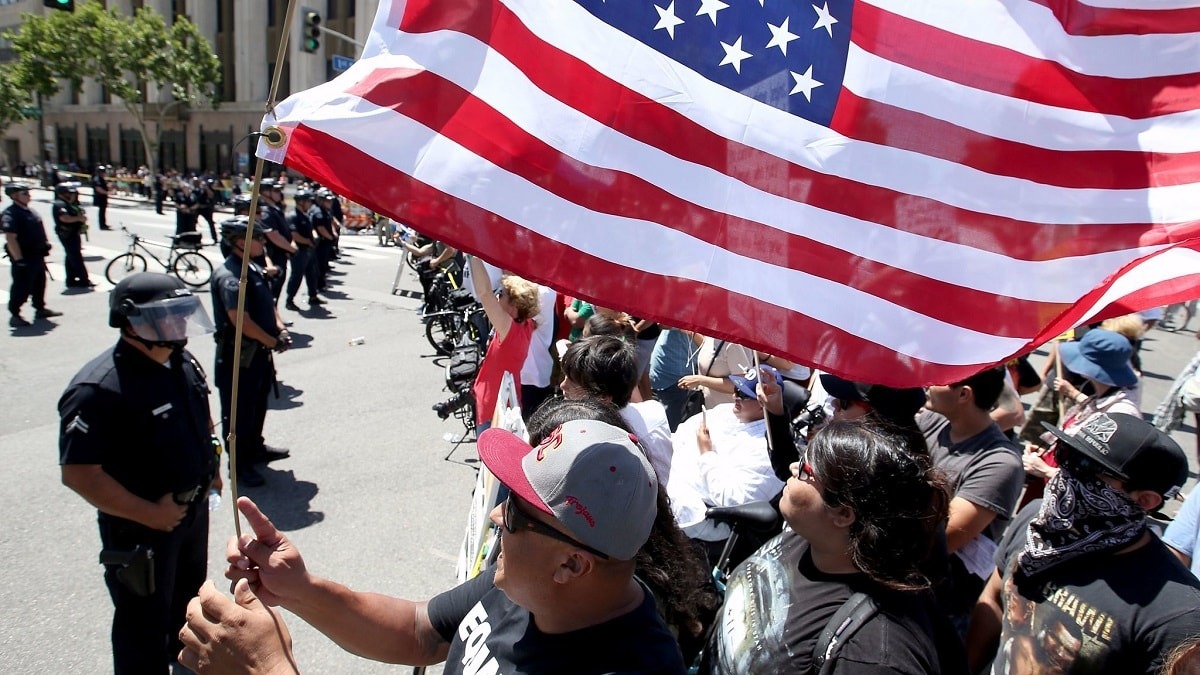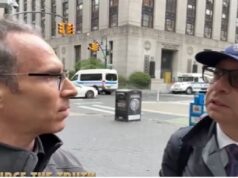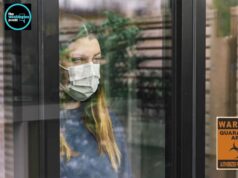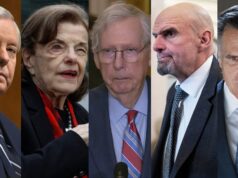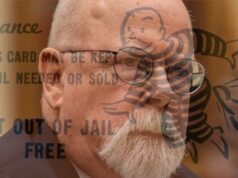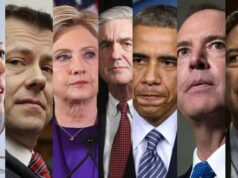LOS ANGELES — The Los Angeles Police Department ordered a confidential informant to monitor and record meetings held by a political group that staged protests against President Donald Trump in 2017, a move that has drawn concern and consternation from civil rights advocates.
On four separate occasions in October 2017, the informant entered Echo Park United Methodist Church with a hidden recorder and captured audio of meetings held by the Los Angeles chapter of Refuse Fascism, a group which has organized a number of large-scale demonstrations against the Trump administration in major U.S. cities, according to court records reviewed by The Times.
The operation was launched by the LAPD’s Major Crimes division in October 2017, as police across the country were preparing for potential mass demonstrations to mark the one-year anniversary of Trump’s election, records show.
Police reports and transcripts documenting the informant’s activities became public as part of an ongoing case against several members of Refuse Fascism who were charged with criminal trespass for blocking a downtown section of the 101 Freeway during two separate anti-Trump demonstrations in September and November of 2017.
An LAPD spokesman declined to make available for an interview anyone involved in the decision to monitor and record the group.
But a law enforcement official with knowledge of the investigation, who spoke to The Times on the condition of anonymity in order to discuss the case candidly, said the decision to embed an informant inside Refuse Fascism was borne out of an abundance of caution. Brawls involving anti-fascists and far-right figures in the Bay Area earlier in 2017, and a white supremacist rally in Charlottesville, Va., that left one woman dead and dozens more injured in August of that year, left detectives hoping to prevent similar outcomes in Los Angeles, the official said.
The official also said investigators believed some members of Refuse Fascism had been involved in previous street violence in the Bay Area. The official did not name those members or provide evidence of that claim. Ultimately, the department determined Refuse Fascism did not pose a threat to the public, the official said.
The LAPD did not conduct similar operations involving right-wing groups in the same time frame, according to the official who spoke with The Times, though experts have said there is little organized far-right activity within the department’s jurisdiction.
Ultimately, the anti-Trump protest that the group organized passed with little incident. Roughly 400 demonstrators marched through downtown, resulting in just two arrests and no injuries. While a small contingent of the President’s supporters showed up to hold a counter-protest, LAPD officers kept both sides apart without any clashes.
The documents do not offer a reason for the decision to monitor the group. But in a recent court filing, a deputy city attorney said the informant was deployed after “the September freeway blockage.”
At a time when political activism has become increasingly common in the face of widespread opposition to the Trump Administration’s policies, civil rights advocates called the LAPD’s tactics “deeply troubling.”
“When you know that your investigation is going to infringe on core political rights that communities have, you have to be damn near certain that there is some criminal activity afoot,” said Mohammad Tasjar, a staff attorney with the American Civil Liberties Union in Southern California who specializes in surveillance matters. “It cannot be that you’re relying on speculation, hunches, innuendos or your gut feeling.”



